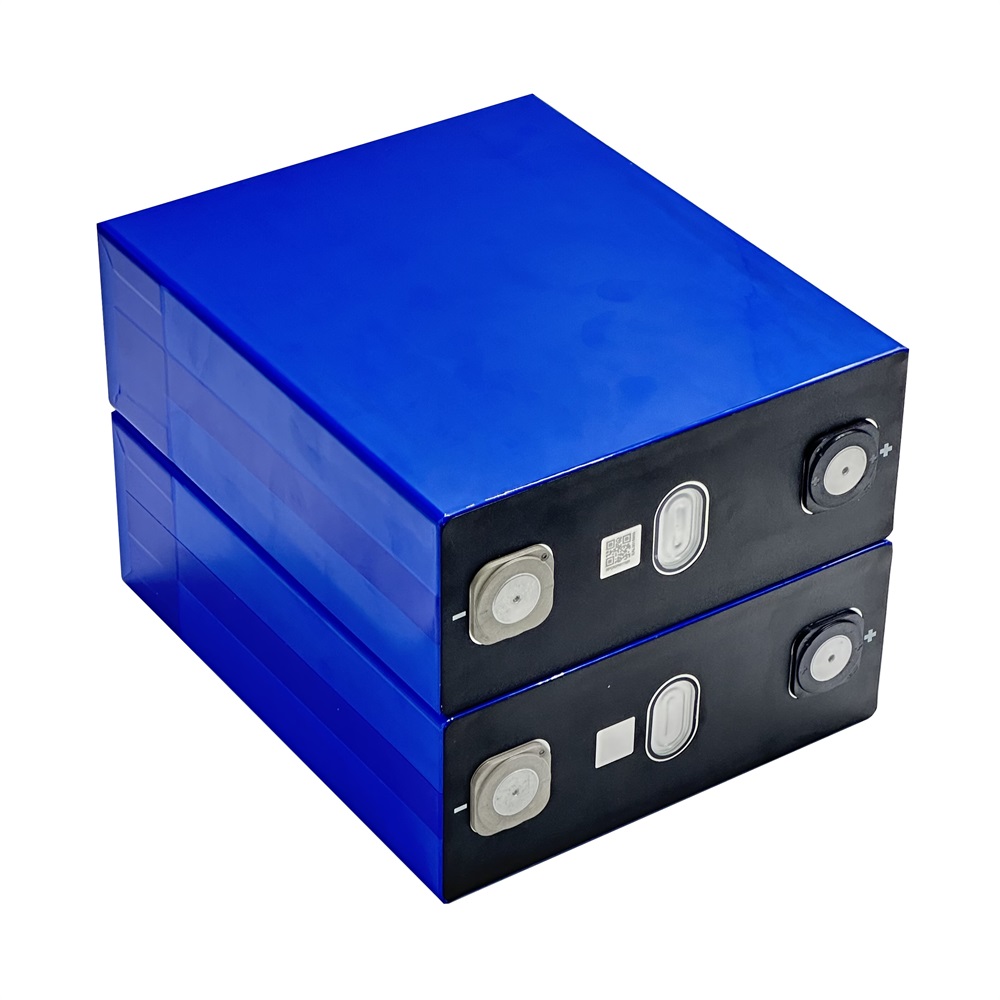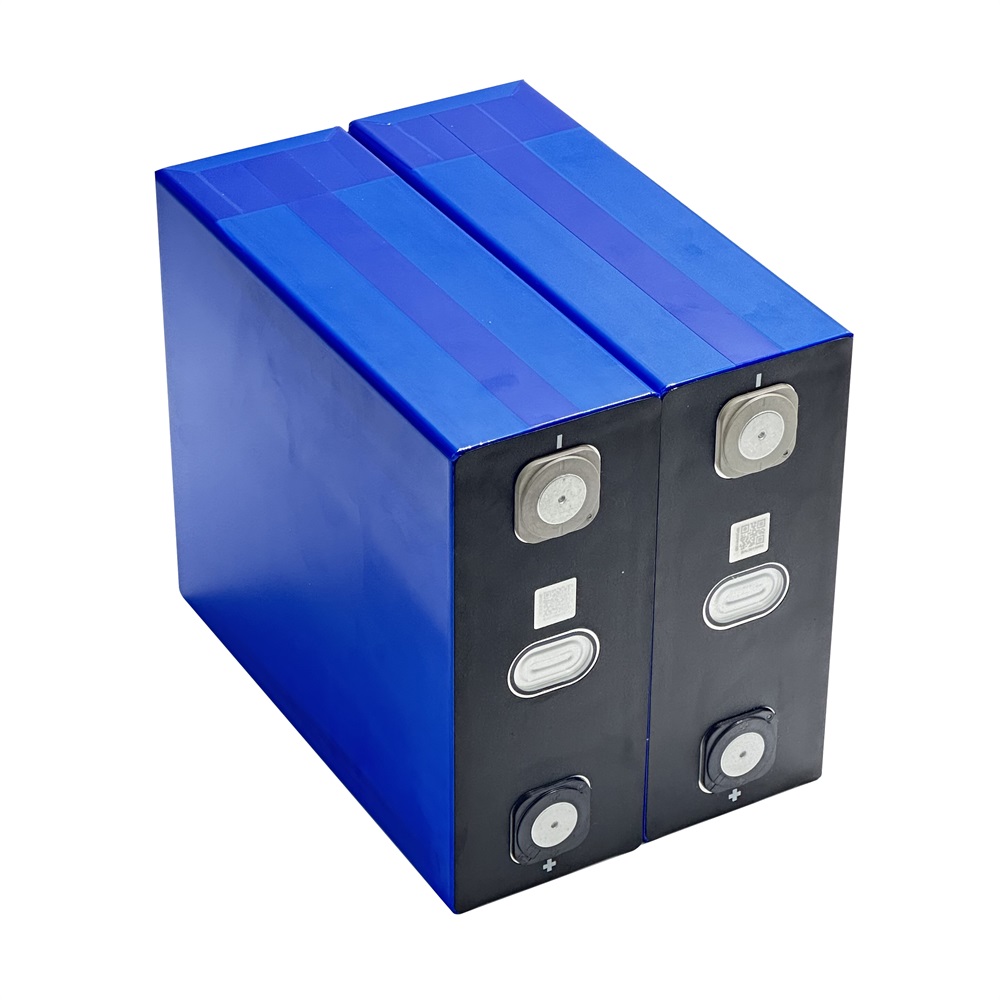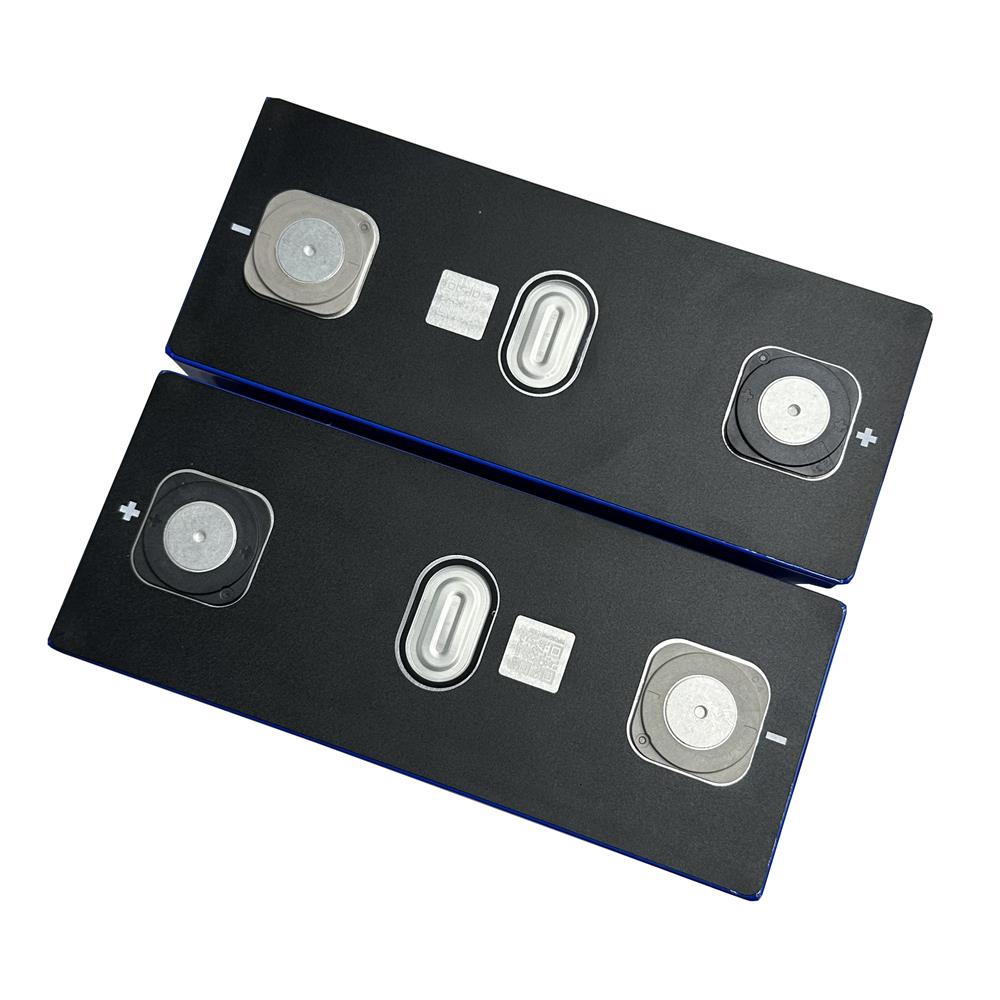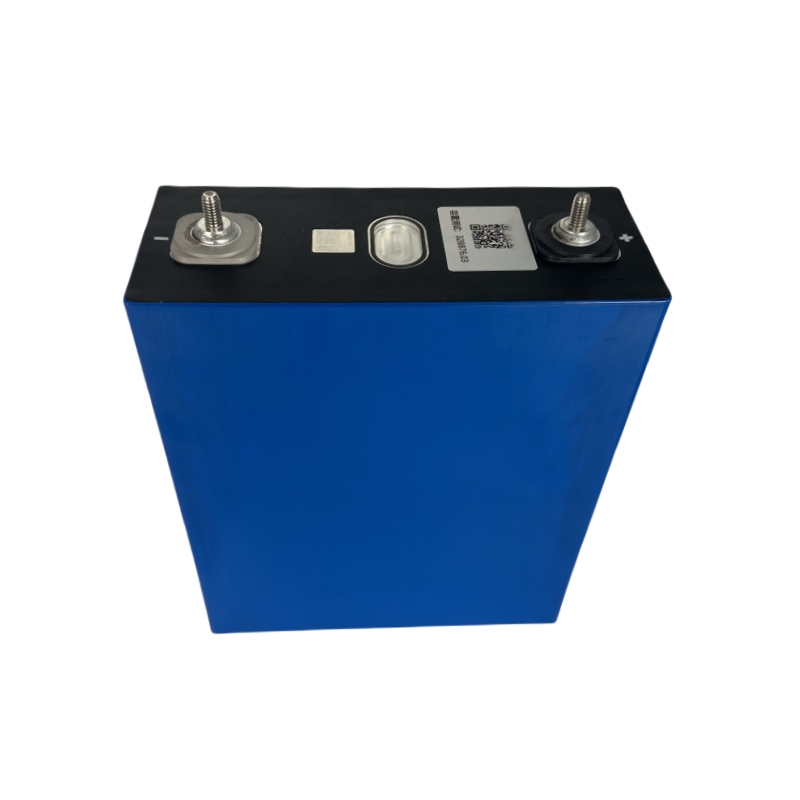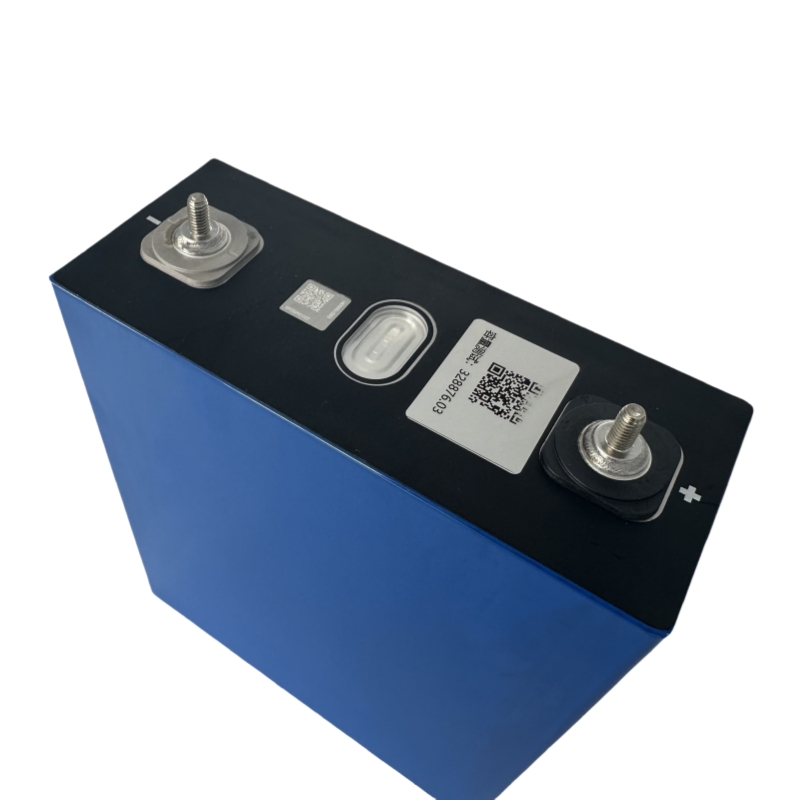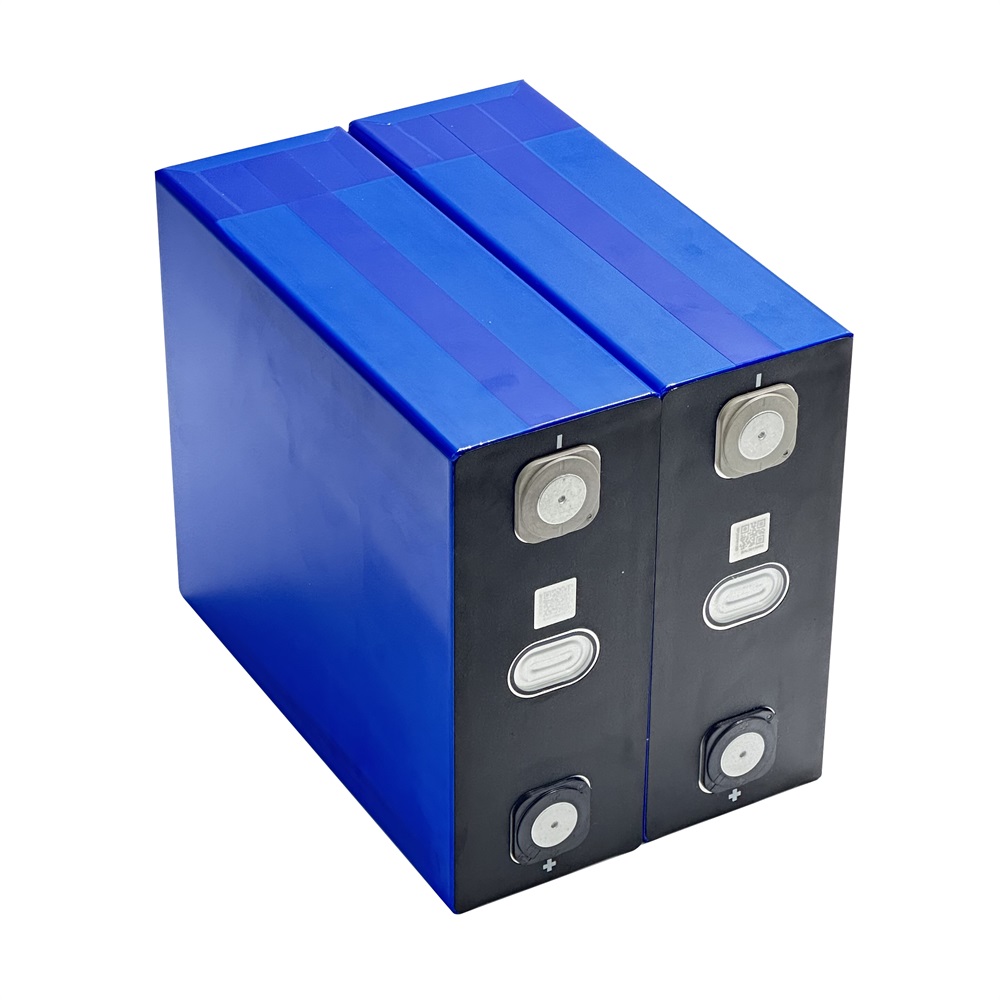E55 LFP-314Ah 3.2V LiFePO4 Battery ESS Cell
3.2V LiFePO4 Battery Cell is suitable for a wide range of energy storage applications and has already been successfully deployed in both utility-scale and C&I BESS.
- Category: LiFePO4 Battery Cell
- Tag: lifepo4 battery cell
Feature of 3.2V LiFePO4 Battery
HIGH CAPACITY
Energy density ↑ 12.5%, System energy density ↑ 35%
HIGH RETURNS
Cell cost ↓ 7%, System returns ↑ 10%
HIGH EFFICIENCY
Overall energy efficiency>95%, Lifetime charging cost<5%
LONG LIFESPAN
12.000 cycles 20-year maximum warranty
HIGH SAFETY
High safety electrolyte Double insulation design
EnergyX's LFP-314Ah 3.2V LiFePO4 Battery is suitable for a wide range of #energystorage applications and has already been successfully deployed in both utility-scale and C&I BESS.
The size of the 314 Ah cell of #SEVB is consistent with that of the 280 Ah cell commonly used in the market (71173), with a 12% increase in capacity for the same volume. The energy density of the cell reaches 180 Wh/kg, and the volumetric energy density reaches 395 Wh/L.
The 314-Ah large energy storage cell can be used in a 20 foot 5 Mwh energy storage system, covering most scenarios such as power storage, industrial and commercial energy storage, household energy storage, network energy, and smart energy.
Specifications
Parameter | Specification |
Cell Type | prismatic battery with high |
Nominal Capacity | 314 Ah |
Nominal Voltage | 3.2V |
Cell Weight | 5.6±0.25 Kg |
Cut-off Voltage | 3.65 V |
End-off Voltage | T>0℃: 2.5 V T≤0℃: 2.0 V |
Standard Charge Power | 0.5 P |
Max Continuous Charge Power | 0.5 P |
Standard Discharge Power | 0.5 P |
Max Continuous Discharge Power | 0.5 P |
Impedance(1kHz, 50%SOC) | <0.21mΩ |
Charge Temperature | 0℃~ 60℃ |
Discharge Temperature | -30℃~ 60℃ |
Storing Temperature | -40℃~ 60℃ |
Optimum Working Temperature | 25℃~ 35℃ |
Residual Capacity Loss (First 3 Month at BOL State) | per month ≤ 3% |
Dimensions (L x W x H) | 174.30(mm)x71.53(mm)x204.33(mm) |
Product Details
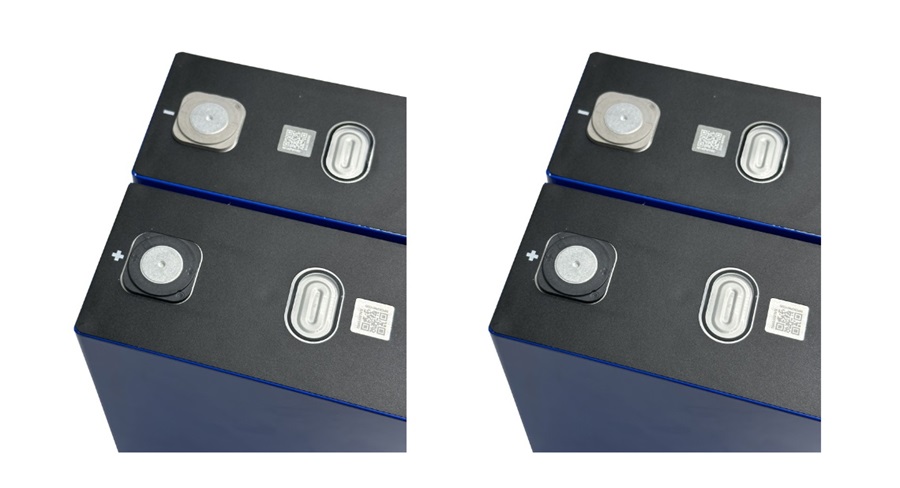
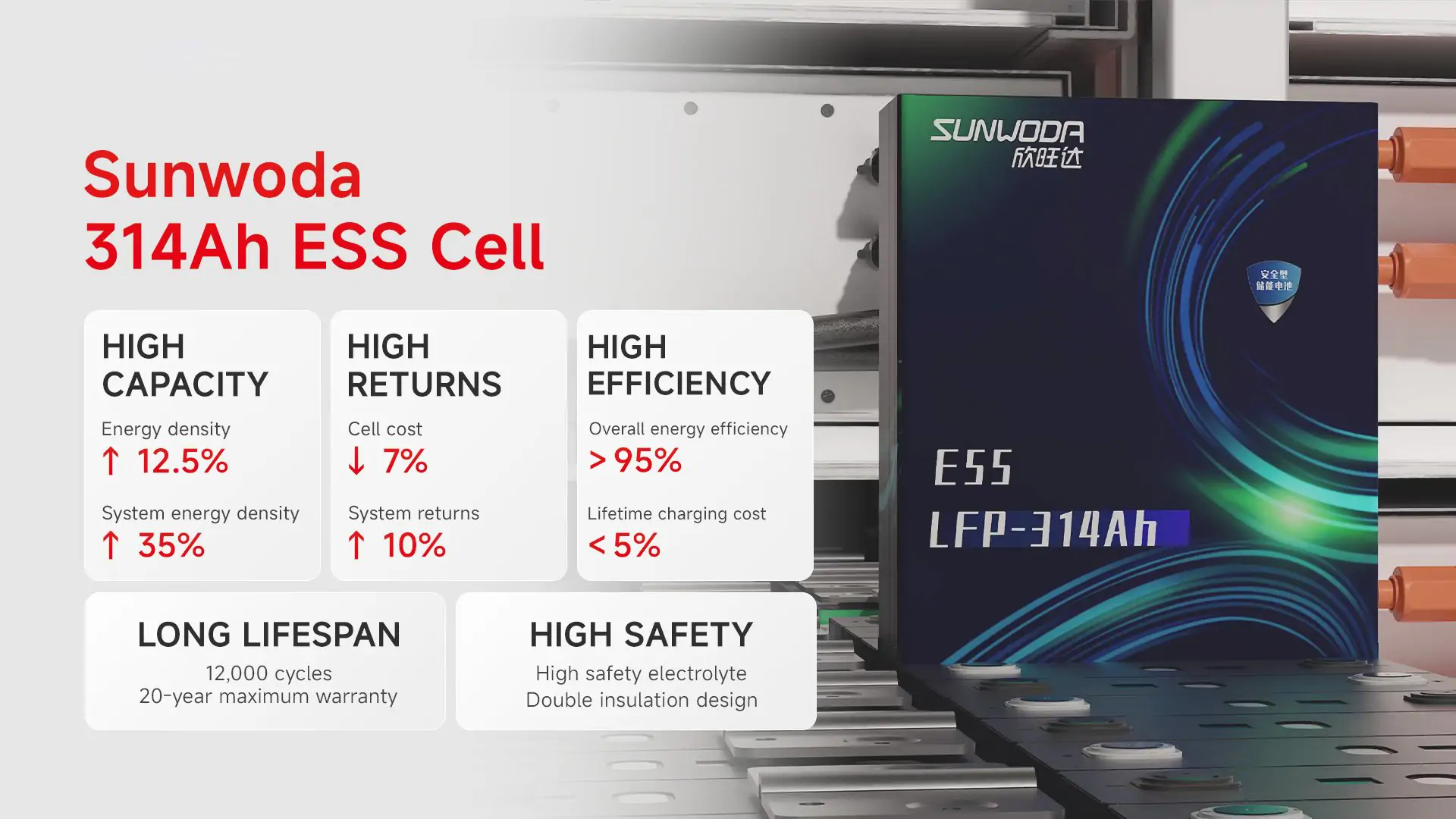
The cell has passed 62 safety tests, including overcharging, over-discharging, overload, external short circuit, internal short circuit, compression, drop, impact, vibration, puncture, insulation temperature rise, combustion, etc. It has passed certifications such as UL9540A, UL1642, UL1973, UN38.3, IEC62619, GB/T36276 (mid-term), and has achieved global circulation.
The cell has been optimized through material system optimization, and the UL9540A certified thermal runaway gas H2 content is less than 34%, which is 10% lower than the industry level, greatly improving the safety of the cell after thermal runaway. At the same time, the safety of the cell system is further improved by cutting off the TP path of the system through the design of creepage distance safety, JR insulation safety, and strong current safety.
Pole Welding Drawing Shot

